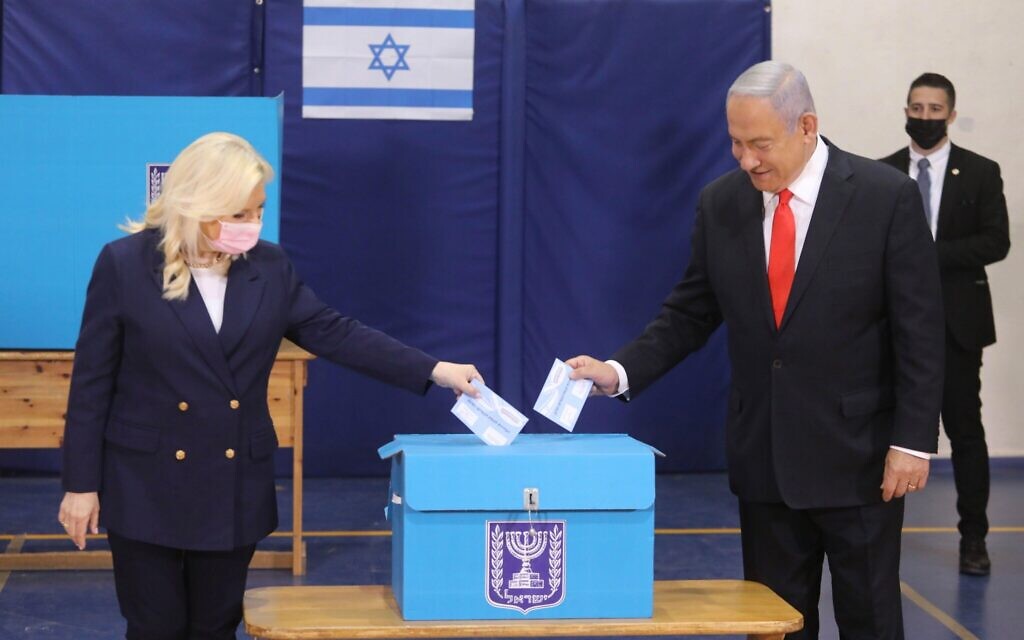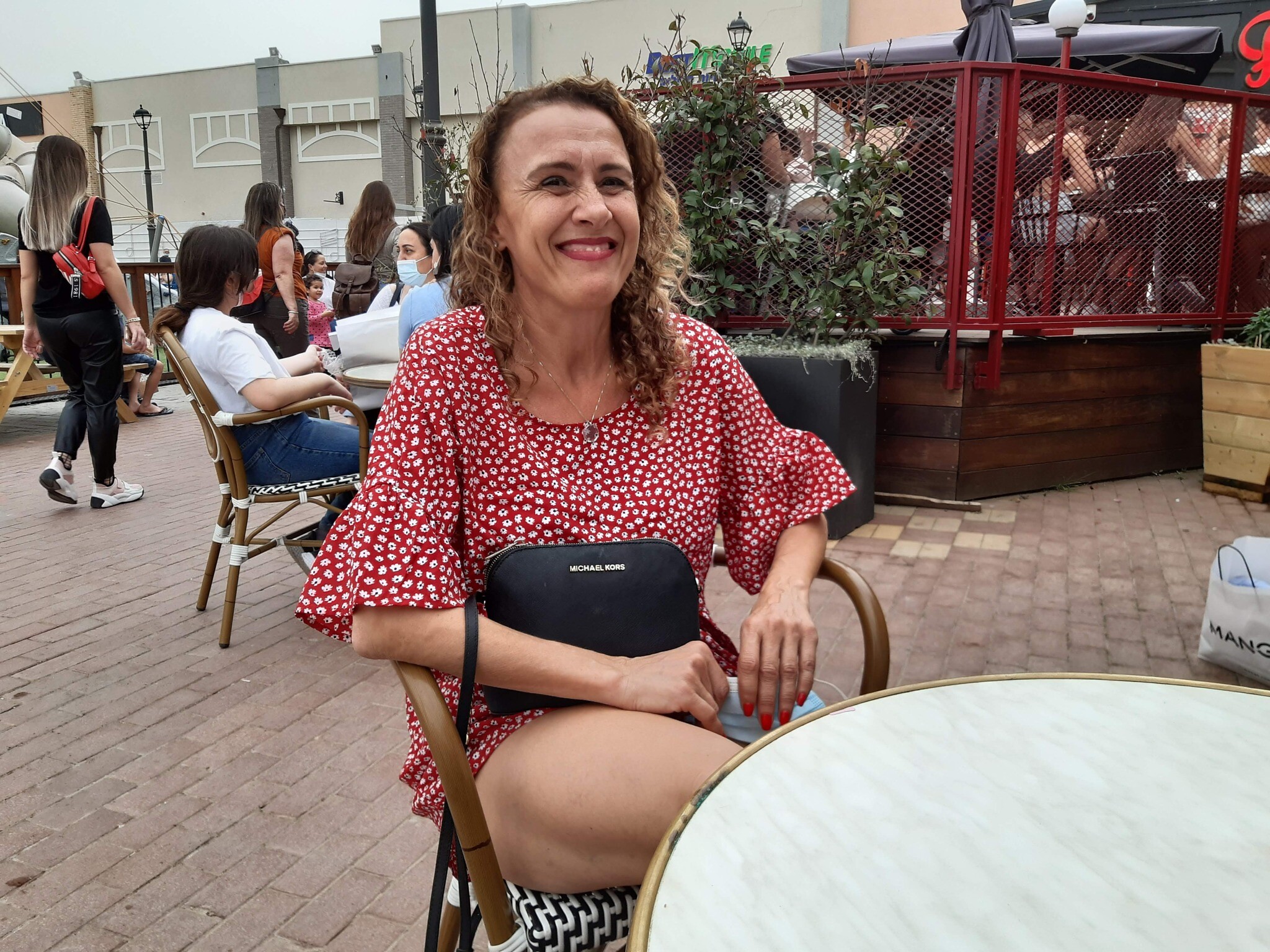Almost as many opinions as political parties
Nathan Jeffay meets Israeli voters from across the political and demographic spectrum, to find our why they voted the way they did

“They’ve tried to sew him up,” said Asher Kallon, explaining why the ongoing corruption case didn’t stop him from voting for Benjamin Netanyahu. In his opinion, proceedings are politically motivated, and the PM is clean.
Whatever happens now, the fact is that Netanyahu has weathered four elections since the police began to investigate the allegations against him, and in each of them emerged strong. It’s still unclear whether he will stay on as Prime Minister, but as of press time he certainly has a good chance.
Who would have predicted this back in 2016, when allegations surfaced? And who would have thought this possible even if he had to contend with a pandemic and months of protests against him?
Get The Jewish News Daily Edition by email and never miss our top stories Free Sign Up
But voters like Kallon, 62, keep him popular. “He’s the strongest leader Israel has, for the issues we face at home and abroad,” he said, voicing a common refrain of the pro-Bibi camp, namely that nobody else has the skills and gravitas to lead Israel.

Some Netanyahu faithful are less cynical about the corruption case than Kallon. Gadi Mavgauker, 45, said: “If he’s proved guilty he’ll get what’s coming to him, but if not, he should be Prime Minister.” He insisted: ““For the last 12 years, since he was elected, things have been good here.”
But the nation is divided, as shown by the results. For each person you meet who loves Netanyahu, you meet another who is disillusioned with him. Adi Biton, 52, said she is “really a Likudnik but can’t vote for Netanyahu.”
She opted for Yair Lapid’sYeshAtid party instead even though — like many Israelis — she felt it was the best available option and far from her ideal. “I voted for Yair Lapid, though I’m not sure I have faith in him,” she said. “However, it’s time to freshen things up. I weighed up the other options and really couldn’t vote for any of them.”

Amram Neeman felt much the same. “Nothing has changed, we’ve had all these elections and nothing has changed,” he complained.
His family, sitting with him on a bench in a mall, nodded in agreement. He voted for YeshAtid; his wife and son also voted centrist. Neeman said he admires what he considers the “real” and principled Israeli right. “I voted for Menachem Begin, who was what I consider a real example of what right-wing should be,” he argued.
Religious-secular dynamics played a major role on election day. The ultra-Orthodox Shas party played a trump card strategy when it came to many religious voters. Faith in God, it argued, goes hand-in-hand with voting Shas. “Vote Shas, and the Holly One Blessed Be He will save us,” says the slogan on a jolly Passover-themed video.
It was the motif of much of the campaigning, and it seems that no party has as many cars bedecked with posters and kids reducing bikes with campaign flags as Shas. Vehicles were bedecked with iconic images of the late spiritual icon of the party, Rabbi Ovadia Yosef, and the loudspeakers blared campaign jingles with the sound of traditional religious music.
Meanwhile, Yisrael Beiteinu party intentionally picked a fight with Israel’s Charedim. Secularist Avigdor Liberman, who leads the faction, seemed to be intentionally mimicking Benjamin Netanyahu’s controversial 2015 comment that Israeli Arabs were heading to polling stations “in droves” when he said on election day that strictly-Orthodox Israelis are “rising” to stations.
Many of his supporters are drawn to him for wanting to challenge the strictly-Orthodox influence on politics. Eli Hakiti, a 20-year-old delivery driver, is keen to see civil marriage in Israel before he wants to wed, as currently only religious marriage is available.
“I’m not Jewish, which means I can’t have a religious marriage and would need to convert to Judaism to marry,” he said, lauding Liberman for championing civil marriage. “I like this ideal of Lieberman, and his other ideas. I don’t want Bibi, and Lieberman is the best option.”
Arab society was divided, just like the rest of Israel. Previous elections saw the many Arab parties run together as the Joint List; this time, it was fragmented, with a conservative faction running separately.
But there is also a feeling among many Arab voters, especially the young, that the existing parties aren’t serving their interests.
Emad Masri, 27, was considering not voting at all, when interviewed in the middle of the day. “I don’t know if I’ll vote, it feels like a waste of time,” he said. “I’m Arab and I’m expected to vote for the Arab party [Joint List], but I feel that the politicians just want to get their seats. I don’t know if I’ll end up voting.”
Some Arab voters took a very different view, not only enthusing about the election, but also embracing Netanyahu. HamudiAmash, a 26-year-old from Jisr az-Zarqa, voted for Netanyahu’s Likud. He insisted that Arab society is misunderstood, and while some are very antagonistic to the PM, others have lots of time for him.
“He’s a good man and I’m used to Israel led by him,” said Amash, who was in his mid-teens when Netanyahu entered office. He said that Netanyahu is liked in his town, which is close to near Caesarea where Netanyahu has his private home. “He’s our neighbour, we like him.”

Thank you for helping to make Jewish News the leading source of news and opinion for the UK Jewish community. Today we're asking for your invaluable help to continue putting our community first in everything we do.
For as little as £5 a month you can help sustain the vital work we do in celebrating and standing up for Jewish life in Britain.
Jewish News holds our community together and keeps us connected. Like a synagogue, it’s where people turn to feel part of something bigger. It also proudly shows the rest of Britain the vibrancy and rich culture of modern Jewish life.
You can make a quick and easy one-off or monthly contribution of £5, £10, £20 or any other sum you’re comfortable with.
100% of your donation will help us continue celebrating our community, in all its dynamic diversity...
Engaging
Being a community platform means so much more than producing a newspaper and website. One of our proudest roles is media partnering with our invaluable charities to amplify the outstanding work they do to help us all.
Celebrating
There’s no shortage of oys in the world but Jewish News takes every opportunity to celebrate the joys too, through projects like Night of Heroes, 40 Under 40 and other compelling countdowns that make the community kvell with pride.
Pioneering
In the first collaboration between media outlets from different faiths, Jewish News worked with British Muslim TV and Church Times to produce a list of young activists leading the way on interfaith understanding.
Campaigning
Royal Mail issued a stamp honouring Holocaust hero Sir Nicholas Winton after a Jewish News campaign attracted more than 100,000 backers. Jewish Newsalso produces special editions of the paper highlighting pressing issues including mental health and Holocaust remembrance.
Easy access
In an age when news is readily accessible, Jewish News provides high-quality content free online and offline, removing any financial barriers to connecting people.
Voice of our community to wider society
The Jewish News team regularly appears on TV, radio and on the pages of the national press to comment on stories about the Jewish community. Easy access to the paper on the streets of London also means Jewish News provides an invaluable window into the community for the country at large.
We hope you agree all this is worth preserving.
-
By Brigit Grant
-
By Laurent Vaughan - Senior Associate (Bishop & Sewell Solicitors)
-
By Laurent Vaughan - Senior Associate (Bishop & Sewell Solicitors)
-
By Laurent Vaughan - Senior Associate (Bishop & Sewell Solicitors)
-
By Laurent Vaughan - Senior Associate (Bishop & Sewell Solicitors)





















